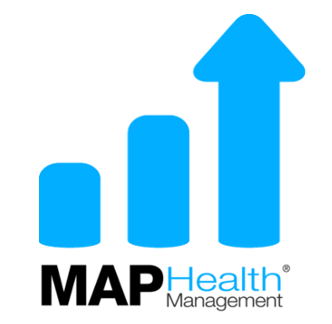How Technology and Data are Disrupting Addiction Treatment
September 13, 2016 Jacob Levenson
As published in PsychCentral, September 12, 2016.

Sometimes the math doesn’t work. That’s why we have systems of checks and balances and why putting things on paper or spreadsheets helps us to understand efficiencies and best practices.
When we break things down, we’re able to remove the myopic blinders, we can see more clearly – we are better informed. And sometimes we learn that things simply don’t add up. Today, we have begun to understand that when it comes to effective treatment for Substance Use Disorder, the numbers aren’t adding up.
Consider this: Approximately 21.5 million Americans meet the criteria for Substance Use Disorder. Of those individuals, only 5.5 million receive services, which means that 16 million Americans have a diagnosable and deadly chronic brain disease and are not receiving treatment.
The disease of addiction does not play by the rules. It devastates families, communities and nations and virtually anyone or anything in its path.
On some level, most every American has embraced technology. It is the tool in which data is delivered and Americans like data. We like having information at our fingertips and we are living more informed lives because of it.
What Works and What Doesn’t
When it comes to healthcare and treatment plans, we want to know what works and what doesn’t. For years, patients have been informing their doctors as to the treatments and regimens they believe to be best-suited to them and in many cases, this practice has been a productive means to a successful end.
Typically, when diagnosed with a chronic illness, the average American asks a myriad of questions and is motivated to learn as much as possible about the most effective form of treatment and what to expect from the process.
Today’s healthcare consumer takes a very proactive position when it comes to understanding their healthcare and are highly involved with understanding biomarkers, treatment episodes, pathology and even pharmacology as they monitor the progress of their,or their loved ones’, treatment.
And therein lies the disruption to addiction treatment: technology is informing the process of best practice and empirical data is demonstrating the most effective treatment plans. Any provider who thinks this scenario is not happening in the field of addiction treatment is egregiously misinformed.
It is time for treatment providers to respond to the disruption that technology and data are creating. Just as a pebble tossed in a pond creates an immediate ripple, empirical data gleaned from the collection of post-treatment outcomes is leaving a measurable wake behind and increasingly technology-savvy consumers have begun to take notice.
Outcomes Data
Without outcomes data, addiction treatment facilities will be passed by for those that have data to report – and why would it be any other way? Why would a patient or health insurance payer be motivated to seek treatment from a provider who has no outcomes data when other providers are able to demonstrate long-term efficacy rates?
But simply having empirical data isn’t enough. Providers must take the information and mold their treatment plans and guide their patients toward the most effective treatment for them, using individualized plans.
Plans must begin in earnest upon the completion of treatment when individuals are discharged back to their homes and communities where they were active in their addiction.
If resources are not allocated to support the collection and demonstration of treatment outcomes data, certain providers are not likely to stay in business. Consumers want data in order to make informed decisions and payers want predictability – the providers who have demonstrable treatment outcomes in their arsenal will be far better prepared for sustained success.
The good news? The collection of post-treatment outcomes data has never been easier. With user-friendly technology platforms, telehealth, and tech-savvy consumers, providers can make a small investment by extending the care continuum to their discharged patients and gain a large benefit by collecting outcomes data and effectively measuring their treatment programs, stepping in when necessary to help predict and prevent a return to addiction.
There is an illusion that addiction treatment isn’t effective and that multiple relapses or use events are to be expected. In fact, many patients report being told they will likely fail treatment when they enter an inpatient facility. (Interestingly, they do not report being told that the treatment will fail them, rather that they will fail treatment)[i].
Providers’ Duty
Addiction treatment providers have a duty to their field of professional peers, the consumers they serve, and health insurance payers. Everyone involved ultimately wants the same outcome: addiction treatment that is effective and positions patients for sustainable, long-term recovery.
When addiction treatment is effective, expenses are reduced which can clear the way for many more individuals who need treatment to receive it.
For too long the field of addiction treatment has not placed significant emphasis on the collection and demonstration of outcomes data which has come to be expected in other segments of healthcare.
In many cases, there has been no post-treatment outcomes collection. Without having rates of treatment efficacy to consider and compare, consumers and payers particularly in today’s data-driven culture, will question the legitimacy of treatment and move on to providers and facilities whose treatment, in essence, is backed by science.
The disruption taking place today is the catalyst for what addiction treatment will look like for our future generations – a future that includes an extended care continuum for everyone suffering from addiction and empirical data to assure everyone that best practice methodologies are in place.
[i] Inside Rehab, The Surprising Truth About Addiction Treatment – And How To Get Help That Works, (2013), Anne M. Fletcher, Viking Press.








